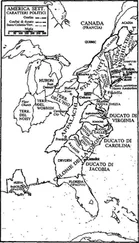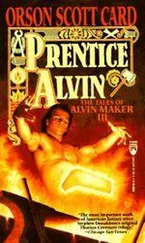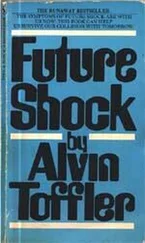The Coral Sea had taken up her post off the coast of North Vietnam in January of 1965, and on the day Flaming Dart II began, Bob Shumaker arrived in his squadron’s ready room for a combat briefing. He found himself and three other Black Knights tasked with escorting a single reconnaissance plane on a mission over Đồng Hới, a town just north of the demilitarized zone (DMZ) that separated North and South Vietnam. Shu felt uneasy about the assignment, which he felt needlessly risked four pilots for the sake of one reconnaissance plane that needed no escort. Nevertheless, with the frustrated resignation that would become familiar to American airmen during this new war, he sat through his preflight briefing and then returned to his stateroom. There, he quietly placed his gold wedding band and his USNA ’56 class ring in his desk safe. He locked away those memories of home and, with firm resolution, walked down the passageway and climbed the ladder to the flight deck. When Shu stepped into the cockpit of his waiting plane—number 403—his crew chief had no doubt he’d see his pilot return.
Less than an hour later, Shu’s jet streaked low over North Vietnam at 2,000 feet. Suddenly, the plane shuddered, rolled upside down, and dove for the ground. Shu toggled his radio, intending to report “403, mayday, I’m hit!”
He managed “Four-zero” then ran out of time. He yanked the ejection handles. Small charges blew the canopy off the jet, and the ejection seat shot him into the sky. His chute opened at what he estimated was 35 feet above the ground. Had he waited to complete his mayday call before ejecting, he would have crashed with his plane.
As it was, he spent less than five seconds in the air. The ground rushed up to him and he tried to execute the roll landing he’d learned in training, but the low-altitude ejection made it impossible and he hit the earth hard on his tailbone. Slowly, he recovered from the shock of his ejection and assessed his surroundings. He’d landed in a deserted field of scrub and waist-high grass. In the roughly ten seconds from the moment his Crusader took the hit until he landed, he had instinctively followed his training. On the ground, his first conscious thought developed. A life insurance salesman had visited the Shumaker home in California shortly before Bob deployed. The man had offered the family additional coverage. Shu declined. There on the ground in North Vietnam, he wished he’d bought it.
Shu felt pain in his back slowly growing but ignored it and turned his attention to his current predicament. He quickly loaded his revolver with .38 caliber slugs, then began burrowing into a nearby thicket, hoping to hide until nightfall. With darkness cloaking him, he planned to trek the 5 miles to the coast and somehow orchestrate a rescue.
For the next hour, he watched from his hiding place as North Vietnamese soldiers and civilians canvassed the field, calling in French for the English-speaking pilot, “Anglais, Anglais!” Shu thought he had evaded the search parties until one last North Vietnamese soldier happened to look through a small tunnel in the brush that led directly to Shu’s eyes. The two men stared at each other, and the soldier leveled an AK-47 at the fugitive. Shu considered firing his .38, but the soldier had the drop on him—and as one man with six bullets surrounded by foes with automatic weapons, he knew his odds.

Bob Shumaker, the second American aviator captured in North Vietnam.
An hour earlier, Shu’s Crusader had roared over the waves firmly under his control. Now he huddled in the scrub brush of a third-world country, dirty, outgunned, unable to speak the language. With no realistic options, he raised his hands. During the August 5, 1964, retaliatory raid ordered by President Johnson and led by Jim Stockdale, Lieutenant Ev Alvarez had become the first U.S. aviator captured in North Vietnam. Shu had now become the second.
* * *
Soldiers quickly bound his hands, blindfolded him, and stuffed him into a jeep. Then he began a three-day journey that would take him from Đồng Hới to the North Vietnamese capital of Hanoi. Every pothole the driver hit sent pain shooting up Shu’s injured back, making the trip all the worse. The jeep stopped before entering each town along the way, and a political officer would hustle into the village and gather crowds of citizens to receive the prisoner. The guards would take Shu out of the truck and parade him through mobs of shouting townspeople who rained blows on the captive, likely the first American they had ever seen. With his hands cuffed, Shu simply tried to maintain his footing and get through one humiliating onslaught so he could face the next.
After three nights of traveling blindfolded through villages and farmland, Shu detected the noises of an urban area. The jeep made a number of turns that seemed to lead deeper into a city until it rumbled to a halt. Soldiers lifted Shu out and set him on his feet. He heard gates open and walked forward along a bricked path. The gates shut behind him, and he heard another pair swing open. Hands on his arms and back pushed him forward. He heard his footsteps echo off walls and a ceiling; he had entered a tunnel. The echoes faded as he emerged 70 feet later and again detected open space around him. The air smelled musty. He felt the guards direct him to the left. He stepped onto a hard floor and heard his steps echo again in a smaller corridor until he emerged into another open space. He turned right and was shoved through a doorway. Then the guards removed his blindfold.
He looked around at a Spartan room with white walls and a smooth concrete floor. He guessed he was somewhere in Hanoi. In fact, he stood near the city’s heart. He had arrived at one of the darkest spots in Southeast Asia: Hỏa Lò Prison.
* * *
When native Vietnamese forces surrendered to the French in 1883, the conquerors quickly consolidated their power and claimed the territory’s people and resources for France. The vigorous application of colonial justice soon filled jails with so many rebels and dissenters that the penal system needed additional space. In 1896, the French regime began constructing a new prison in central Hanoi, near the existing Court of Justice and Intelligence Department. The government cleared forty-eight small houses from the neighborhood of Phú Khánh to build a 42,349-square-foot detention facility. Phú Khánh residents had been known for their pottery kilns, or hỏa lò— pronounced “wah low.” So although the administration gave it the official name of Maison Centrale (literally the “central house,” but meaning “prison”), the place quickly became known as Hỏa Lò Prison. It received the name for another reason as well, though. Hỏa lò had an alternative translation: hellhole.
When Hỏa Lò began receiving inmates in 1898, the compound’s yellow and gray stone wall—built nearly 2 feet thick—stretched around a trapezoidal plot between several of Hanoi’s busiest thoroughfares. A hedge of green glass shards covered the top of the 13-foot-high bulwark. Live electrical wires ran above the glass. Several trees arched over the walls and shaded the security moat between the outer wall and the inner buildings. Inside, the terra-cotta roofs of cellblocks and administration offices rose above the walls. From the outside, Hỏa Lò looked as much like a walled government compound as a prison.
Its interior, however, revealed its purpose. Colonial jailers at Hỏa Lò had clamped Vietnamese prisoners in stocks on long wooden platforms in mass holding rooms, pressing twenty-five nearly naked men together with little concern for their toilet or exercise. Authorities dispensed food and water frugally—and prisoners found both of deplorable quality. Wardens sent the condemned into solitary confinement in the southeasternmost cellblock, where they spent their last days chained to bunks in dirty, claustrophobic cells. In the courtyard, jailers frequently employed the guillotine. As the years passed, conditions grew worse. Wardens became more callous, and overcrowding soon added more misery to the inmates’ dreadful existence. In 1913, the population had reached six hundred inmates. By the end of French rule in 1954, the place held more than two thousand; many of those prisoners suffocated in impossibly cramped cells.
Читать дальше













